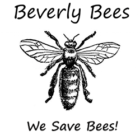Nucs and What Have I Been Up To Lately?
I have spent so much time writing about the incredible bee events I have attended this summer that I have neglected to update everyone on what I have been doing lately. So in brief here it is. Expanded updates will be coming soon with pictures.
After the Treatment Free Conference I set up two brand new nucs to overwinter using some locally mated Carniolan queens. Overwintering nucs is a great way to avoid buying package bees in the Spring and there are few techniques to it that I will be writing about soon.
Then I attended EAS, the Eastern Apicultural Society’s annual week long beekeeping event. It was incredible! I met many impressive beekeepers and learned so much. They also had a honey show where I entered some photos and took home a First and Fourth place. I will write about this event too after the beekeeping season winds down.
After EAS, I came home to find out that Brian’s hive Squill, (which by the way should now be called my hive because he has lost interest in managing it – he still does great with the wood working though!) had decided to supersede their queen. This hive was having issues with deformed wings virus (which is usually a sign of varroa mites) and bald-faced brood (which could be a number of things but usually is wax moth), so I panicked that something was wrong with the queen. Normally I would let this hive requeen except that it was the end of August and by the time the cell hatched and the queen mated and starting laying eggs it would be the end of September, which would not give her enough time to build up enough bees to survive the winter. I had an extra Russian queen on hand for an observation hive I was supposed to make up for the Topsfield Fair in October. However this queen had a broken middle leg and I had requested a new one for the observation hive in case this injured queen failed. Realizing that I had two extra queens, one of whom may be good, one who may be no good due to an injured leg, and one old queen who may be no good because she was being superceded and one new queen who may not make it back from her mating flight, I decided to split Squill into 4 nucs and try to overwinter it that way. Although is was a little late in the season to make nus for overwintering I figured it would give me the most chance for at least one hive to survive. As it turned out, the new virgin queen nuc did not make it. The gimpy Russian queen kicked butt and is still alive today, the old queen in Squill did much better after she was moved to a nuc and built up a very strong nuc colony without disease. The deformed wings and bald faced brood went away due to a reduction in brood combs and a minor break in the brood cycle. The new Russian queen also did great and I lucked out because it took the company so long to send her and for the bees to release her that she never made it to the observation hive after all. It was too late to set it up by that time as it had to be done 30 days before the fair start date.
The past week or so I have been moving bees back and forth after I found out my town was spraying for mosquitoes with a pesticide called Duet which is extremely toxic to honeybees. This also started a minor robbing frenzy which I stopped from continuing but the one nuc that was trying to raise a new queen either perished in this or died from the pesticide contact in the environment. All the bees in that hive, except a few stragglers, were mysteriously missing as if they had vanished.
The next week I will be working at the Topsfield Fair in the bee house. So if you are nearby stop on by and say hello and check out some of the awesome bee exhibits entered in the honey show. From the Topsfield Fair website:
“The Beekeeping & Honey Show at Topsfield Fair is the largest at any fair in North America. The first honey exhibits were entered in 1844. The show has been operated and sponsored by the Essex County Beekeepers Association since 1928. In 1998 the International Association of Fairs and Expositions awarded it “First Place” for the excellence of its presentation. There are up to four live observation hives on display during the Fair. Knowledgeable beekeepers will explain the inner workings of a bee colony to fairgoers. Children can make their own honeycomb beeswax candle to take home as a souvenir of their visit to the Beekeeping Building. At the 2007 Fair there were more than 250 entries into four divisions at the show including: honey, beeswax, beekeeping related arts & crafts and cooking with honey. The competition is open to all.”
I hope to see you at the fair and promise to get back to regularly scheduled postings soon! If you ever wonder what I’m up to daily subscribe to me on twitter or join my facebook page which gets daily updates of beekeeping info and activities.
